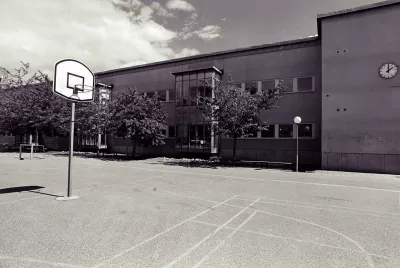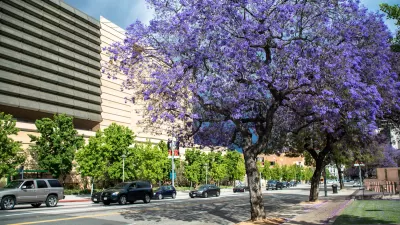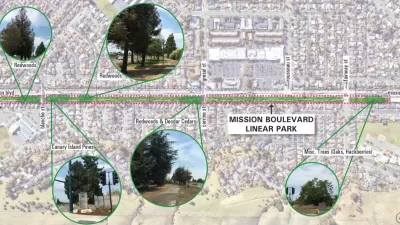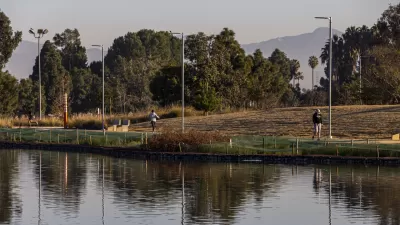Advocates for increasing green space on school campuses say giving students a more healthy outdoor environment can also reduce the urban heat island effect and improve public health in historically underserved communities.

According to an article by Tony Barboza, "too many children are forced to learn and play in paved-over, fenced-in and often treeless campuses that draw apt comparisons to prison yards or parking lots."
"These conditions are detrimental to learning, health and well-being, and especially harmful because they are so common in the same low-income communities of color that already suffer from a lack of tree canopy, park space and higher exposure to heat and pollution." To address this issue, Los Angeles Unified School District’s new superintendent, Alberto Carvalho, "has promised to release a plan within his first 100 days to green schoolyards, starting with asphalt-dominated campuses in neighborhoods with the greatest need for open space."
The new superintendent isn't the first to notice this problem. Last year, Planetizen reported on the Trust for Public Land's analysis of urban schoolyards and their potential to double as much-needed green space in park-poor communities. "Advocacy groups say that despite some success at individual school sites, district and state bureaucracy is a barrier to removing asphalt from school campuses across the city, sometimes because of concerns about increased maintenance costs or due to space requirements for activities like basketball, tetherball and four square that restrict the number of trees and amount landscaping that can be planted."
Barboza points out that converting LAUSD's schoolyards, at less than $2 million per campus, would cost less than building a new park, and argues that the benefits of healthy, green environments outweigh the investment required.
FULL STORY: LA's asphalt-covered schoolyards are an environmental injustice

Planetizen Federal Action Tracker
A weekly monitor of how Trump’s orders and actions are impacting planners and planning in America.

Maui's Vacation Rental Debate Turns Ugly
Verbal attacks, misinformation campaigns and fistfights plague a high-stakes debate to convert thousands of vacation rentals into long-term housing.

Restaurant Patios Were a Pandemic Win — Why Were They so Hard to Keep?
Social distancing requirements and changes in travel patterns prompted cities to pilot new uses for street and sidewalk space. Then it got complicated.

In California Battle of Housing vs. Environment, Housing Just Won
A new state law significantly limits the power of CEQA, an environmental review law that served as a powerful tool for blocking new development.

Boulder Eliminates Parking Minimums Citywide
Officials estimate the cost of building a single underground parking space at up to $100,000.

Orange County, Florida Adopts Largest US “Sprawl Repair” Code
The ‘Orange Code’ seeks to rectify decades of sprawl-inducing, car-oriented development.
Urban Design for Planners 1: Software Tools
This six-course series explores essential urban design concepts using open source software and equips planners with the tools they need to participate fully in the urban design process.
Planning for Universal Design
Learn the tools for implementing Universal Design in planning regulations.
Heyer Gruel & Associates PA
JM Goldson LLC
Custer County Colorado
City of Camden Redevelopment Agency
City of Astoria
Transportation Research & Education Center (TREC) at Portland State University
Jefferson Parish Government
Camden Redevelopment Agency
City of Claremont





























